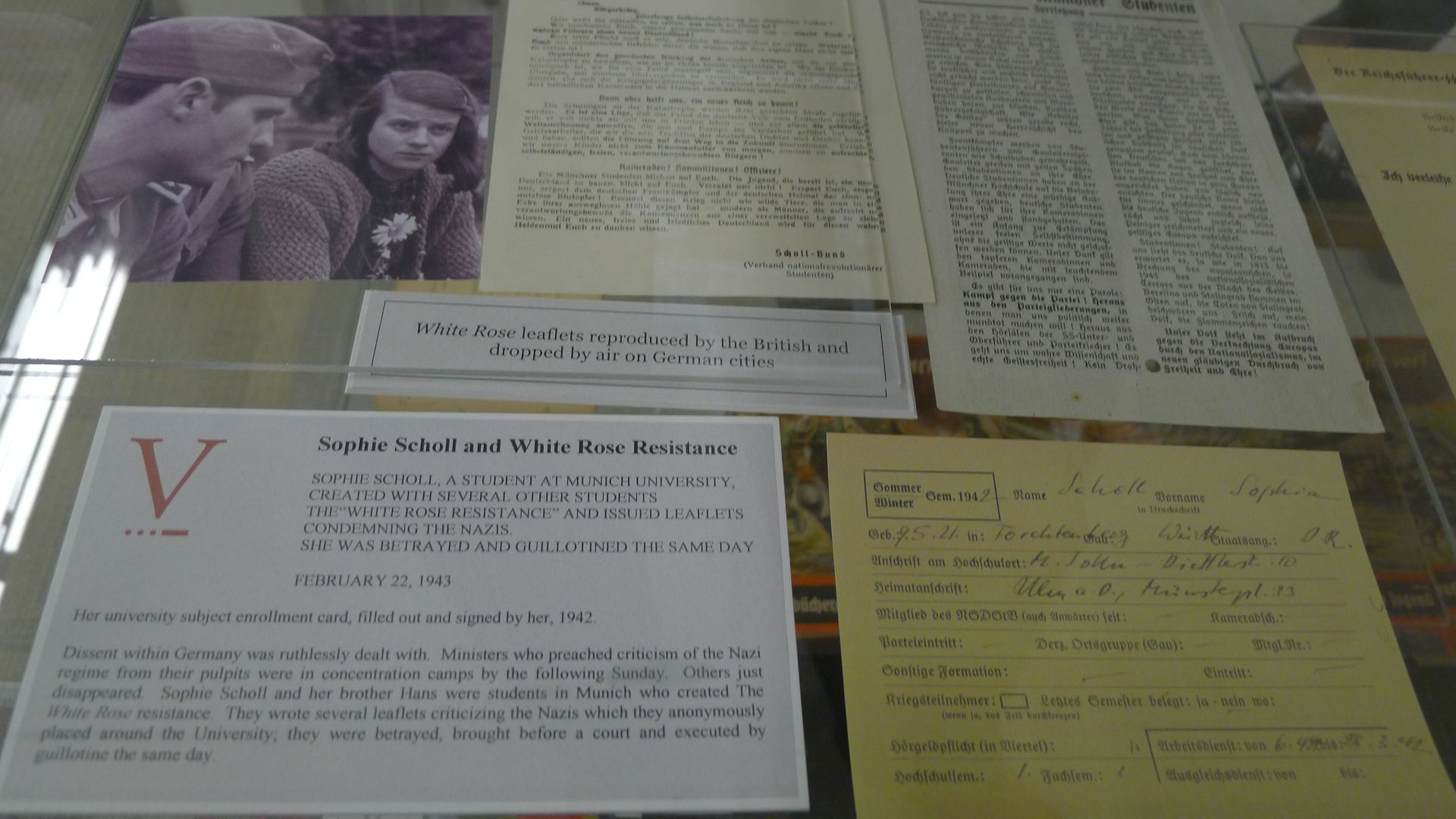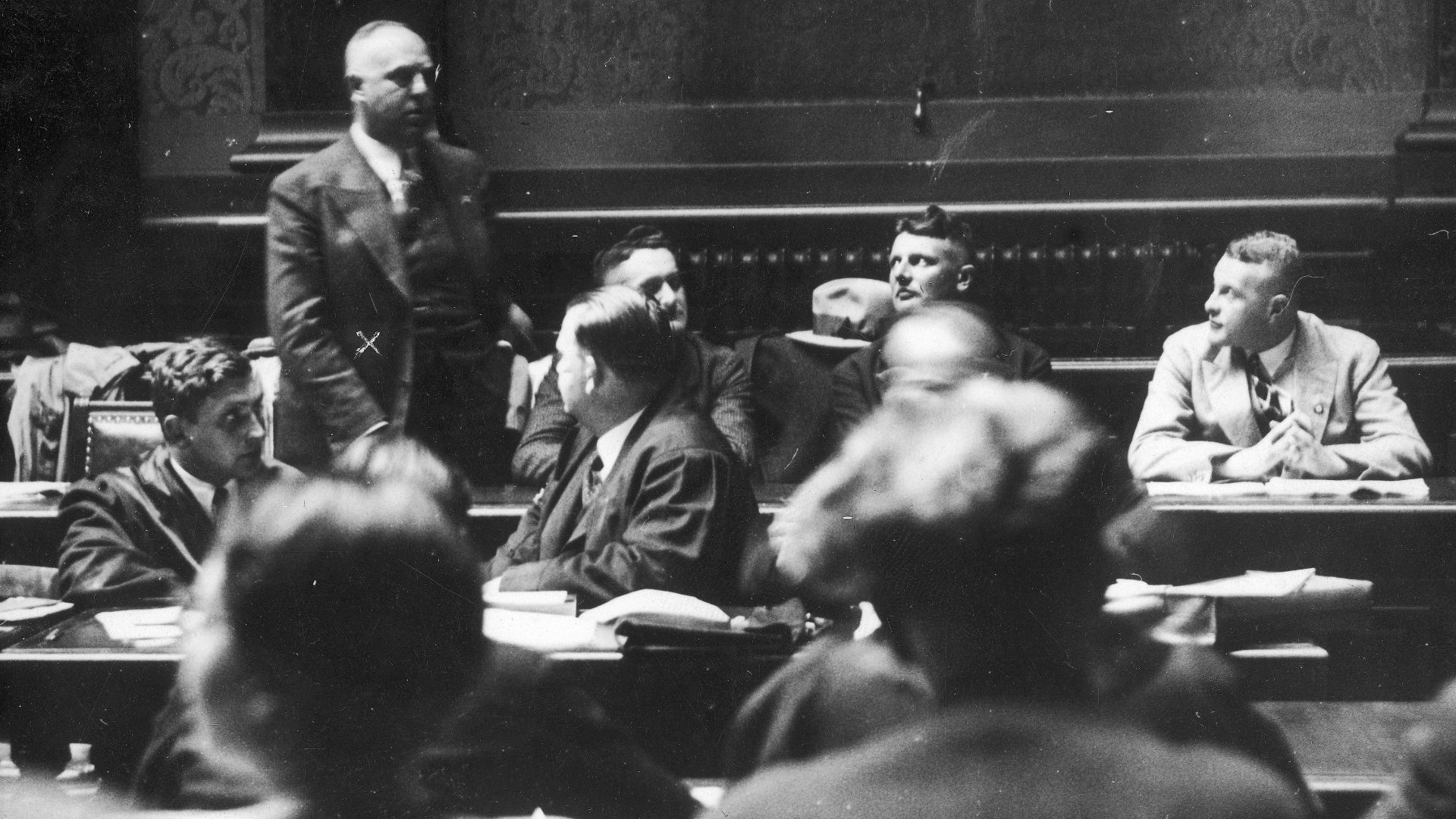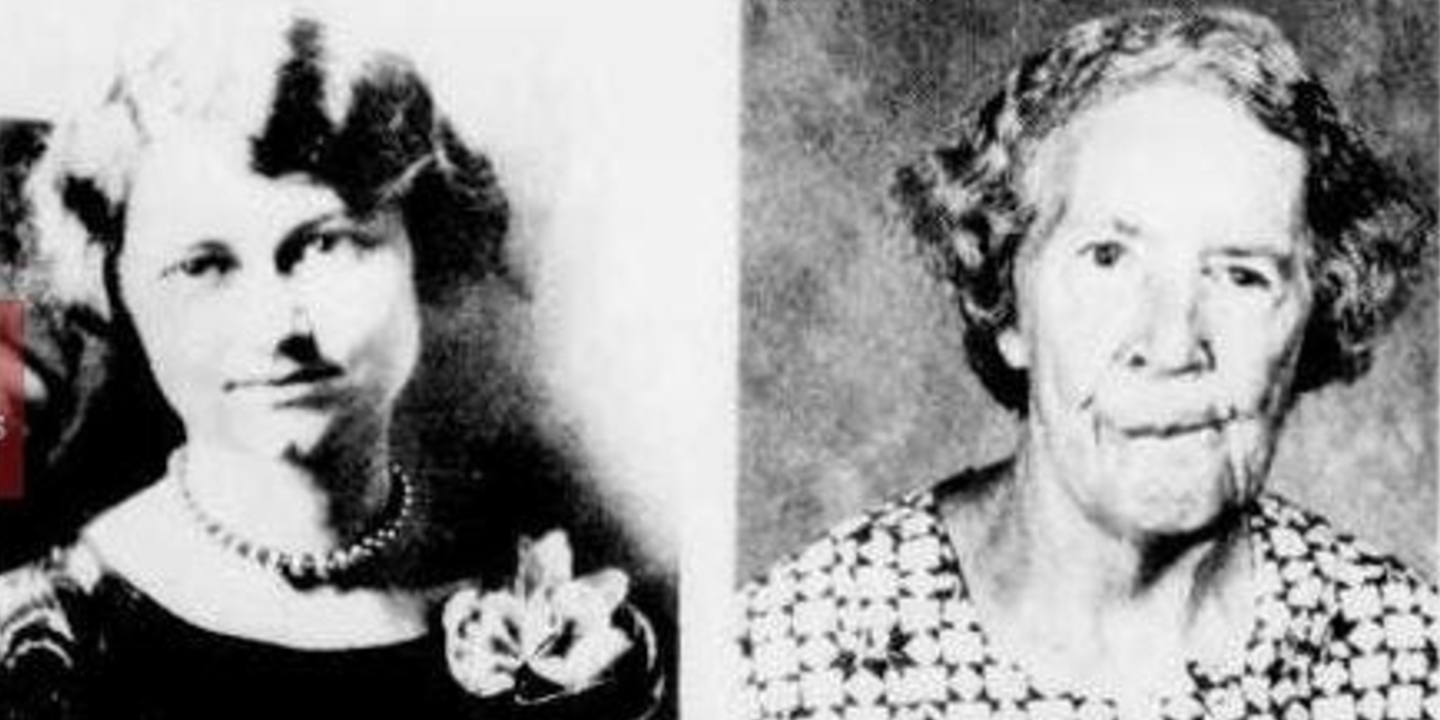Sophie Scholl: The Teen Who Defied Hitler and Paid With Her Life
 Unknown German police officer on Wikimedia
Unknown German police officer on Wikimedia
Most twenty-one-year-olds are preoccupied with exams and dating and what they're going to do after graduation. Sophie Scholl surely had these same things on her mind, but the era she found herself in demanded that she set those small concerns aside for matters of life and death. While studying biology and philosophy at the Ludwig-Maximilians University in Munich, she was also distributing anti-Nazi leaflets in the middle of Hitler's Germany, knowing full well what would happen if she got caught. When the authorities discovered her activities, she was arrested along with her brother Hans and their friend Christoph Probst. Four days later, on February 22, 1943, she and the two others were executed by guillotine.
She Wasn't Always a Rebel
What makes Sophie's story more complicated than the tidy narrative of a brave resistance fighter is that she was technically a Nazi herself. As a child, she joined the League of German Girls, the female branch of the Hitler Youth, and even became its leader. The propaganda was powerful, the social pressure immense, and the activities of camping, singing, and feeling part of something bigger were genuinely appealing and even wholesome.
But something in Sophie gradually shifted as her university exposed her to banned literature, alternative ideas, and the brutal reality faced by persecuted people under Hitler’s chancellorship. Her brother Hans had already started questioning everything about the Nazi movement and was involved with a resistance group called the White Rose.
When Scholl's father was imprisoned in 1942 for negative remarks against Hitler, her resolve was further solidified. By the time Sophie joined the White Rose, she was prepared to risk everything to undermine Hitler’s regime.
The White Rose Wasn't About Violence
 leewrightonflickr on Wikimedia
leewrightonflickr on Wikimedia
The group Sophie joined didn't blow things up or assassinate officials. They wrote leaflets. Just words on paper, calling on Germans to resist the Nazi regime, to recognize the atrocities being committed, to think for themselves.
In an age of military resistance and underground armies, the White Rose fought with essays. But in a totalitarian state where every newspaper, every radio broadcast, every school lesson reinforced the same lies, even a single dissenting voice was dangerous. The leaflets talked about the systematic murder of Jews. They even quoted philosophers and poets in an appeal to Germans' better nature, assuming one still existed somewhere under all that propaganda.
Sophie and Hans would stuff leaflets into envelopes and mail them to addresses they found in phone books. They'd leave stacks in telephone booths and parked cars. Every time they set out with a stack of leaflets, the risk escalated as possession of anti-Nazi material meant arrest. Distribution meant death.
The Arrest Was Almost Absurdly Mundane
On February 18, 1943, Sophie and Hans brought a suitcase full of leaflets to the University of Munich. They distributed them carefully around the building. Once they finished, they had a few left over, and Hans tossed a stack off a balcony into the atrium below.
A custodian named Jakob Schmid, a loyal Nazi, witnessed their act from below and turned them in. Sometimes resistance doesn't end in dramatic shootouts or daring escapes. Sometimes it's just a janitor doing what he thinks is his duty, and two students who became careless.
The Gestapo found more leaflets in their apartment, along with evidence connecting them to other members of the White Rose. There was no ambiguity about what they'd done. Sophie initially tried to take all the blame, claiming Hans wasn't really involved, but there was too much evidence to the contrary.
She Didn't Recant
 Unknown authorUnknown author on Wikimedia
Unknown authorUnknown author on Wikimedia
During interrogation, Sophie could likely have saved herself if she'd shown remorse and claimed she was misled by her brother. The Nazis liked stories of weak-minded girls corrupted by dangerous men and perhaps would have sent her to prison instead.
Sophie did the opposite and defended every word they'd written. When the Gestapo interrogator asked if she regretted her actions, she said no. She told him someone had to make a start, that what they'd done was necessary. Four days after arrest, she was put on trial, the outcome already predetermined. Judge Roland Freisler, who was notorious for his theatrical courtroom rants, sentenced her to death.
She was guillotined the same afternoon. Her last words, according to witnesses, were "Such a fine, sunny day, and I have to go. But what does my death matter, if through us, thousands of people are awakened and stirred to action?"
The Leaflets Outlived Her
Germany may have kept fighting for over two years after Sophie's execution, but those leaflets spread farther than she ever knew. Significantly, a copy of her sixth leaflet was smuggled out of Germany and brought to the United Kingdom. Winston Churchill, recognizing its value, ordered millions of copies to be printed under the title "A German Leaflet: Manifesto of the Students of Munich." In the summer of 1943, the Royal Air Force dropped these leaflets over Germany, ensuring a much wider readership than the White Rose members could have achieved on their own.
After the war, Sophie Scholl became one of the most famous figures of German resistance. Schools are named after her. She's held up as proof that not all Germans complied, that resistance was possible even in the heart of the Reich.
KEEP ON READING

The 10 Youngest Monarchs In History & The 10 Oldest
Age Is Just A Number. Imagine being crowned king or…
By Chase Wexler Mar 11, 2025
WWI Messages in a Bottle Just Washed Up on Australia’s…
Jayne Harris on UnsplashA century-old message in a bottle was…
By Cameron Dick Nov 13, 2025
Written By The Victors: 20 Names History Books Tried To…
History’s Forgotten Figures. It is said that history is written…
By Farva Ivkovic Jun 23, 2025
Writing On The Wall: 20 Fascinating Hieroglyphics Throughout History
A Language Carved To Last. Hieroglyphics are unique, ancient writings.…
By Chase Wexler May 29, 2025
Women At War: 20 Fierce, Fearless, & Famous Female Fighters
How Many Of These Women Warriors Do You Know?. History…
By Emilie Richardson-Dupuis Aug 14, 2025
The Woman Without A Name
Mary Doefour was the woman without a name. In 1978,…
By Robbie Woods Dec 3, 2024
